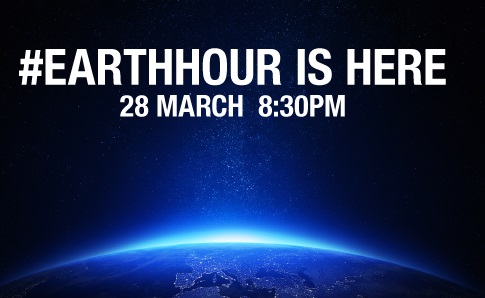As a mark of respect to Lee Kuan Yew, WWF-Singapore will be cancelling the Earth Hour event at ION Orchard today.
In place of the event, the team will join the global community for the lights off by forming a 60+ Earth Hour logo with LED candles outside ION Orchard at 8.30 pm.
Elaine Tan, CEO of WWF-Singapore, paid tribute to Lee's environmental contributions:
"Having led Singapore’s incredible success story, Mr Lee was from the start a champion of the environment. It was his vision that led to Singapore achieving its status as a true City in A Garden. From our nation’s reservoirs, to our lush parks, nature reserves and to the trees that line our roads, every day we are reminded of Mr Lee’s lasting legacy."
What is Earth Hour?
WWF’s (World Wide Fund For Nature) Earth Hour is the world’s largest environmental grassroots movement, involving over 7,000 cities in 162 countries. Earth Hour, which started in Sydney in 2007, has managed to lobby for climate-friendly legislation in Nepal and Russia, among many other environmental initiatives worldwide.
One way WWF is aiming to push the message across is through immersing people in three plausible scenarios in which we may see and feel Singapore’s future.
Video for Earth Hour 2015
" width="560" height="315" frameborder="0" allowfullscreen="allowfullscreen">
So what may our future look like?
Scenario 1: Warming trends and increasing temperatures would result in higher daily temperatures (>38 Degree Celsius) and heat waves. This would lead to more forest fires (and haze), more dengue cases and we generally feel we are being grilled alive. Currently we ‘buay tahan’ the weather, the future will be worse.
Scenario 2: Unfavourable and unpredictable weather disrupts harvest cycles and destroys crops around the world. As Singapore import’s most of our food, we can expect a shortage and rising prices. There would be riots on the streets, and fights breaking out at supermarkets over the dwindling supply of goods.
Scenario 3: Our polar ice caps have largely melted, and this had led to rising seas levels and intense rainfall episodes. Sea levels will rise, flooding many coastal low-lying areas. Our roads and basements will be flooded (or ponding?) plus the threat of malaria, cholera and other water borne diseases. Swimming and rowing may be our main mode of movement.
Why should I care?
For the Millennials: We would be living most of our lifespans in a much different environment than our parents did. One of the three above scenarios may, based on scientific research, be our future lives. The best way to avoid this is to play our individual part. For our future!
For the Baby Boomers: Many of you may have children, and they would inherit the world we have left behind. Parents always want the best for their children, right? So we need to leave behind a world sustainable enough for them to live on. For your children!
How can I help?
The aim of Earth Hour (besides the symbolic switching off the lights), is to encourage small lifestyle changes. This does not mean making us all cavemen or be a hermit; and I confess I cannot live without my computer.
The aim is to ensure more sustainable living. So here are some ways we can all help our planet:
1) Turning up our air conditioning by 1 Degree Celsius
2) Rejecting plastic bags if unnecessary
3) Recycling our e-waste (used handphones, wires etc)
4) Turning off switches (especially overnight) and reducing shower time (<15mins)
5) Tap2Donate to support climate change initiatives (Piloting Satellite-Enabled Camera Traps)
We need to realize that climate change affects everyone and crosses national, ethnic and religious lines. It is not “someone else’s problem”; it is our collective, human one.
Top photo from Earth Hour Facebook page.
If you like what you read, follow us on Facebook and Twitter to get the latest updates.
If you like what you read, follow us on Facebook, Instagram, Twitter and Telegram to get the latest updates.
